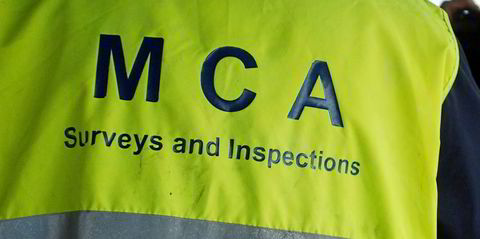A leading UK maritime charity has called for a nominal but mandatory port levy for commercial ships to raise nearly £5m ($6.1m) for seafarer welfare.
Ten of the 120 ports in the UK have voluntary schemes in place, but they raise less than £200,000 ($244,000) a year, according to the Merchant Navy Welfare Board.
It says a port levy would be a game changer as it revealed that charities expected to spend £4.8m ($5.85m) this year on services to help seafarers arriving in the UK.
It said the current fixed donation schemes run by a small number of ports ranged between £10 ($12) and £35 ($43) per ship visit, compared with the cost of more than £100,000 ($122,000) for bringing a large ship into port.
The charge allowed authorities at the four ports of the Humber to raise £72,000 ($88,000) last year, which was shared between charities.
The MNWB wants the government to make the levy mandatory, as many invoices requesting donations go unpaid.
Countries like Germany, Romania and New Zealand have schemes in place, and dozens of other countries are working on levy schemes, said MNWB chief executive Stuart Rivers.
The donations are used for services, including seafarer centres at ports, transport costs to take seafarers to shops for medical help and help with contacting families.
Rivers said the money was needed as charities faced increasing difficulties raising funds during an economic downturn.
“Legislation of this kind, whereby funding responsibility falls to those companies who employ seafarers, could save the welfare sector from crippling,” he said.
“Seafarers keep the global economy alive, and they are an asset to any shipowner. Let’s treat them as well as possible.”
Speaking at an event on Monday to mark the charity’s 75th anniversary, Rivers said the UK government had been receptive to the proposal.
Its report showed that more than 60% of the 120 ports in the UK it assessed did not have a centre for seafarers.
The MNWB is an umbrella organisation for 43 maritime charities that support seafarers, fishermen and their families.
It received about half of its £4.1m income last year from the government as a one-off payment to help cope with the fallout from the coronavirus pandemic.
Read more
- Local hero: Harry Vafias elected city councillor in Athens suburb
- Former P&I boss Catherine Mulvihill takes over at nav dues body IFAN
- Clarksons staff raise money in memory of brokers Dominic Low and Remco Hemminga
- Columbia launches rehabilitation centre project for Ukraine seafarers
- In pictures: Dragons take to the waves to net big bucks for Spinnaker’s OSCAR charity





